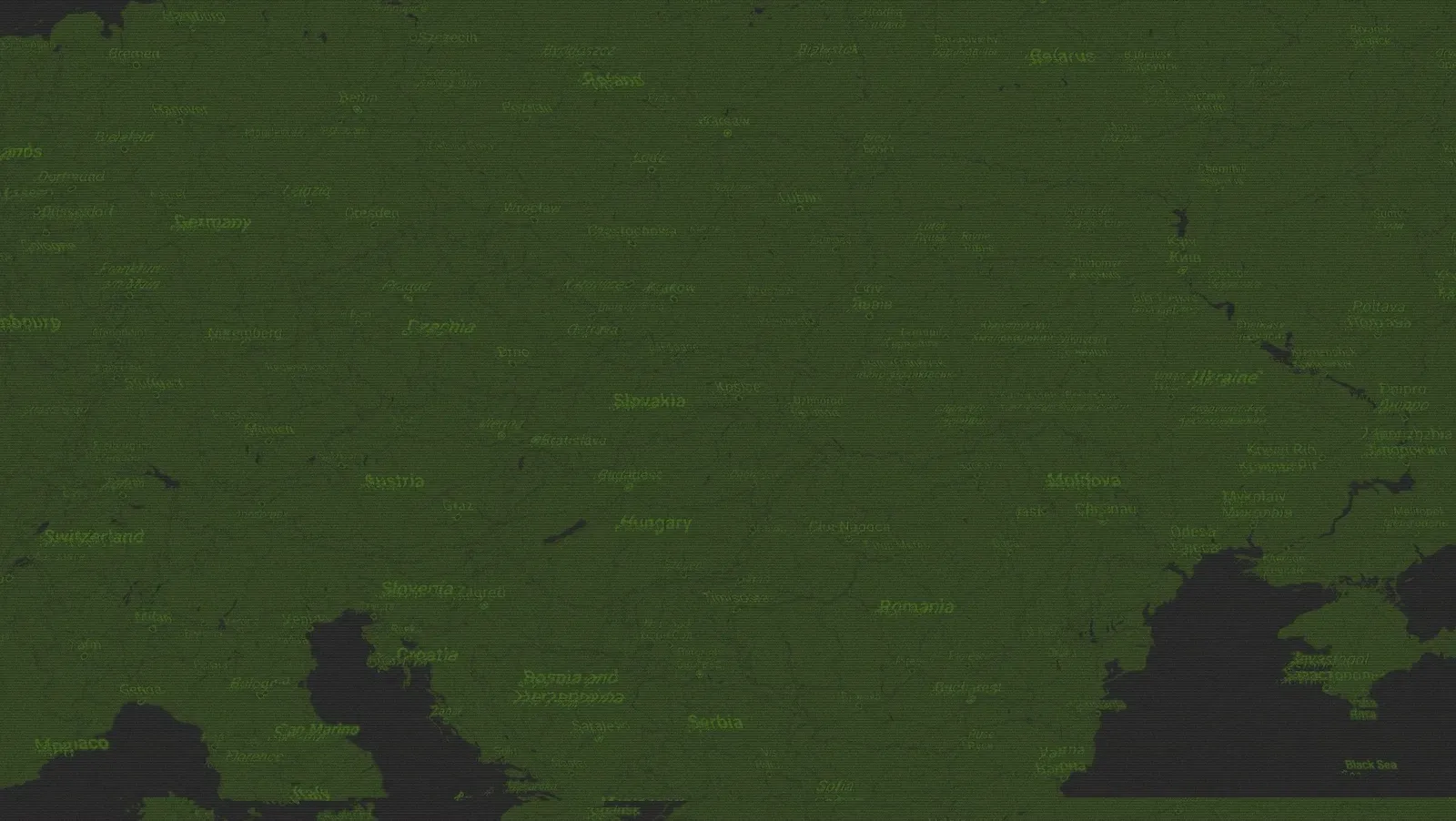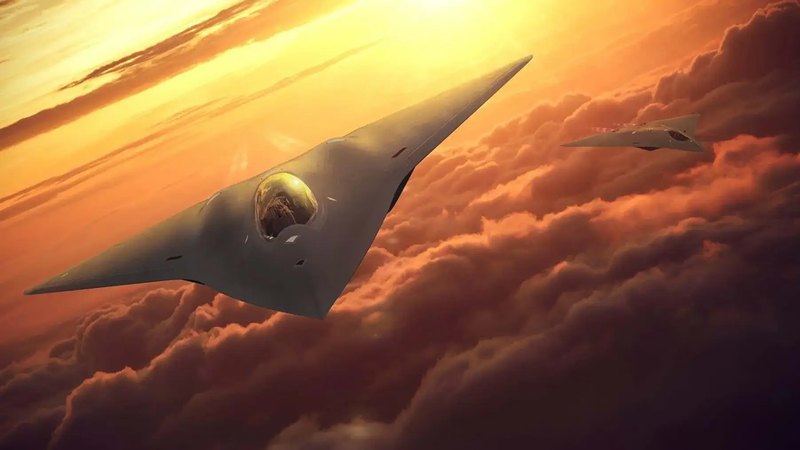Großwald Curated | Weekly No.16: Taurus, Drones & Europe’s Quiet Rearmament
April 13–20, 2025 | NATO & European Defense, Tech, and Policy – Europe’s Weekly Briefing. Curated for Policy, Intelligence, and Defense Communities in NATO and the EU.
The transatlantic consensus is cracking—quietly, and in plain sight. This week, Germany edges closer to arming Ukraine with Taurus missiles, fast-tracks AI-powered drones, and greenlights Arrow 3 deployment.
NATO’s posture shifts across the Baltic, Black Sea, and high north. In Brussels and Berlin, it’s logistics season—not conference season. Meanwhile, the U.S. pulls back, and Germany finds itself—again—as the hinge.
A curated dispatch from the front lines of Europe’s defense pivot.
This Week’s Structure:
I. Ukraine War & Strategic Realignments
– Transatlantic Fractures and Europe’s Calculus
– Ukraine’s NATO Bid and Merz’s Realpolitik
II. Germany: The Emerging Defense Backbone
– Germany’s Role as Test Case for European Readiness
– Drone Breakthrough: Stark OWE-V and AI-Enabled Strike
– Taurus Missile Debate: A Flashpoint for Coordination
– Arrow 3 at Holzdorf: Strategic Shield or Political Fuse?
III. NATO Posture & Regional Hotspots
– Bundeswehr at Desert Flag: Return to Joint Combat Air Ops
– Regional Watch: Black Sea, Middle East, Arctic Escalations
– CEE Flashpoints: Rule-of-Law Battles, Defense Realignments
IV. Transatlantic Strain & Strategic Divergence
– U.S.–EU Tensions: Trade, DEI, and Travel Politics
– Europe in Orbit: German Satellite Defense by 2029

I. Ukraine War and Strategic Realignments
Ukraine Conflict: Transatlantic Fractures and Europe’s Strategic Calculus
Efforts to broker peace in Ukraine dominated the week, revealing widening divergences across the NATO alliance. In Paris, representatives from Ukraine, the U.S., and EU—including Germany’s national security advisor Jens Plötner—held closed-door talks described by French officials as an “excellent exchange” (Rheinische Post, Die Welt). U.S. Secretary of State Marco Rubio, however, signaled potential disengagement: “If it’s not feasible [to end the war] in the short term… we just have to move on” (Der Spiegel, T-Online).
This stance drew public rebuke from senior German lawmakers. Roderich Kiesewetter (CDU) warned of a collapse in trust in the U.S. as a security guarantor, while Sergey Lagodinsky (Greens) criticized the Biden-to-Trump transition as devolving into “bazaar-style bargaining” (Der Tagesspiegel).
France, the UK, and other European states reiterated their support for military reinforcement of Ukraine ahead of any negotiations. President Zelenskyy again requested urgent air defense systems following Russian drone strikes, stating: “Every defense package… literally protects lives” (Telegram, cited in Die Welt).
Ukraine’s NATO Bid and Merz’s Realpolitik
Chancellor-designate Merz expressed opposition to Ukraine’s NATO or EU accession while the war is ongoing, but reaffirmed long-term commitments. He warned against underestimating Russian endurance and stressed that “Europe is a capable and ready political unit” (Handelsblatt). Ambassador Oleksii Makeiev responded by calling Germany “our ally number one” and reaffirmed Kyiv’s NATO ambitions (RND).
Merz accepted President Zelenskyy's invitation to the May 9 “Coalition of the Willing” summit in Kyiv, alongside Macron and Tusk. The summit will focus on post-war security guarantees and alliance coordination (AFP).

II. Germany and the Evolving Defense Backbone
Germany’s Positioning: Strategic Test Case for European Defense Readiness
Germany’s evolving defense policy now serves as a bellwether for broader European military posture. The CDU/SPD coalition agreement includes plans to double troop levels to 460,000 (including reservists) by 2029, without reinstating conscription (Die Welt). General Carsten Breuer, Inspector General of the Bundeswehr, linked the move to NATO capability goals. However, even with an 18.5% rise in Bundeswehr applications in 2024, overall troop numbers declined—underscoring personnel retention challenges (ARD Tagesschau).
Drone Breakthrough: Stark OWE-V Combat Drone, Nvidia Chips & Fast-Track-Deployment
Bundeswehr drone capacity is being upgraded. Munich-based Stark Defence unveiled the OWE-V combat drone, capable of 100 km strike range and one-hour loiter time, powered by Nvidia AI chips - reports suggest it is considered a significant upgrade in AI-enabled precision strike systems, aligning with NATO’s evolving unmanned doctrine. The OWE-V is being fast-tracked into Bundeswehr integration (Frankfurter Allgemeine Zeitung). Defense expert Kiesewetter called Germany’s current drone and EW capabilities a “security threat,” urging full operationalization across all troop formations (RND).
Taurus Missile Debate: A Flashpoint for Intra-European Coordination
Calls for Germany to deliver Taurus cruise missiles to Ukraine intensified. Former Ambassador Andriy Melnyk publicly urged incoming Chancellor Friedrich Merz to greenlight 150 missiles and transfer 30% of Germany’s fighter aircraft inventory (Die Welt). Merz, in an ARD interview, backed Taurus delivery—potentially targeting the Kerch Bridge—but stressed the need for European alignment (Der Tagesspiegel).
Support came from EU and NATO figures, including Kaja Kallas, Radosław Sikorski, and Caspar Veldkamp. Conversely, Kremlin spokesperson Dmitry Peskov warned of escalation. Outgoing Defense Minister Boris Pistorius cast doubt on the move, citing interoperability concerns (Süddeutsche Zeitung).
Arrow 3 Stationing at Holzdorf: Strategic Shield Amid Protest
The Bundeswehr confirmed the planned stationing of Israel’s Arrow 3 missile defense system at Holzdorf Air Base, targeting operational readiness by 2030 (Die Welt). Despite SPD coalition support, local protests led by Die Linke and intra-coalition criticism from BSW have emerged. The system fills critical air defense gaps and anchors NATO’s central European intercept capabilities amid rising aerial threats.

III. NATO Posture and Regional Security Hotspots
Bundeswehr in Desert Flag 2025: Reentry into Joint Air Warfare Exercises
Germany resumed participation in Desert Flag 2025 in the United Arab Emirates for the first time since 2012. The exercises include complex air operations, low-altitude scenarios, and JTAC coordination, with participation from the U.S., UK, France, Australia, India, Türkiye, and Gulf allies (T-Online). The Bundeswehr’s deployment of Tornado jets underscores Berlin’s intent to strengthen ties with key regional partners and to reassert its expeditionary air combat capabilities in strategic theaters beyond Europe.
NATO-Regional Dynamics: Black Sea, Middle East, and the Arctic
Inspector General Breuer's visit to Türkiye, including meetings with defense firms Aselsan and Tusas, reflects deepening NATO-EU-Turkish defense links, especially regarding Syria and Black Sea strategy (Merkur). Türkiye’s role as a non-U.S. pillar of NATO strategy is gaining prominence amid EU efforts to diversify partnerships.
Germany resumed participation in UAE's Desert Flag 2025 alongside U.S., UK, France, Australia, and Türkiye—highlighting operational readiness in joint air operations and low-altitude warfare (T-Online).
Separately, Baltic Sea hybrid threats are rising, per Rear Admiral Christian Walter Meyer. The modernization of Russia’s Baltic fleet and intensified sabotage activities are of particular concern (Welt am Sonntag). Denmark committed €2 billion to Arctic defense infrastructure amid ongoing U.S. interest in Greenland (SPIEGEL+). Rear Admiral Meyer also emphasized NATO naval cohesion in the region, noting the accelerated integration of new members Finland and Sweden into Baltic Sea defense planning.
CEE Flashpoints: Rule of Law, Strategic Detachment, and Defense Realignments
In Hungary, the Fidesz-KDNP government passed a constitutional amendment banning public LGBTQ+ events, including Budapest Pride. The law authorizes facial recognition surveillance to identify participants. EU lawmakers have petitioned the European Court of Justice for an injunction, citing a “very hostile atmosphere” for LGBTQ+ individuals (The Guardian, AP News, Reuters, Euronews).
Separately, Hungary faces non-compliance proceedings from the International Criminal Court after refusing to arrest Israeli Prime Minister Benjamin Netanyahu during his recent visit to Budapest. Despite an active ICC warrant, Hungary claimed the Rome Statute was never incorporated into domestic law (AP News).
In Poland, presidential elections are sharpening political divisions. Warsaw Mayor Rafał Trzaskowski (Civic Platform) maintains a lead, while far-right candidate Sławomir Mentzen has overtaken the PiS-endorsed Karol Nawrocki in recent polling (Euronews). Meanwhile, a 1,000-year commemoration of Poland’s first royal coronation doubled as a rally for nationalist and conservative blocs (AP News, Euronews).
Belarus remains on a repressive trajectory. At least 40 journalists are currently imprisoned, with many reporting torture and denial of medical care. The Belarusian Association of Journalists noted 397 politically motivated arrests of media workers since 2020. Reporters Without Borders has filed a complaint at the ICC alleging crimes against humanity (AP News, U.S. News).
In the Baltics, defense ministers from Estonia, Latvia, Lithuania, and Poland declared their intent to withdraw from the Ottawa Convention banning anti-personnel mines. Officials cited the deteriorating security landscape on NATO’s eastern flank and the need for “flexible defense postures” (Militarnyi, Arms Control Association).
On the energy front, the Baltic states finalized their decoupling from the Russian-Belarusian power grid, fully integrating with the EU’s synchronous electricity network—a major milestone in regional energy sovereignty (RTTNews, Argus Media). For a case study on such autonomy politics read our article on Czechia's first-time oil independence from Russian oil.

IV. Transatlantic Strain and Political Divergence
U.S.-EU Tensions: Trade, Security, and Value Discrepancies
Washington’s stance under President Trump continues to cause transatlantic strain. German firms like Deutsche Telekom and BMW are under pressure to drop DEI programs; T-Mobile U.S. complied, reportedly linked to regulatory approval for its Lumos acquisition (Focus). CEO Tim Höttges confirmed that U.S. operations generate nearly two-thirds of Deutsche Telekom’s revenue.
Immigration enforcement incidents—Germans denied U.S. entry or detained despite valid visas—led to a 15–20% drop in U.S.-bound travel. CDU’s Wadephul called the cases “unacceptable” (ARD Tagesschau).
Italy’s PM Giorgia Meloni is positioning herself as a pragmatic interlocutor between Trump and the EU, exploiting ideological proximity while avoiding defense spending commitments (T-Online).
Strategic Autonomy in Space and Intelligence Infrastructure: German Satellite Defense Network 2029
Germany's coalition agreement outlines the creation of a national satellite defense network by 2029, paired with the launch of a new Ministry for Research, Technology, and Space (RND, Welt am Sonntag). Aimed at reducing reliance on U.S. assets like SpaceX and bolstering cyber-resilience, the effort signals Europe’s pivot toward dual-use space assets as a frontier of strategic independence.
Outlook
In the coming weeks, Germany will face mounting pressure to clarify its position on Taurus missile deliveries, as the “Coalition of the Willing” summit in Kyiv approaches. Drone integration and the Arrow 3 deployment signal a shift from rhetoric to readiness—but they also risk fracturing domestic consensus.
NATO’s posture is visibly adjusting: Arctic deployments, Baltic energy sovereignty, and increased joint exercises point to a new tempo in European defense planning. Meanwhile, Poland’s election cycle and Hungary’s ICC standoff could complicate regional coordination.
Expect the next 1–2 weeks to test whether Europe can align policy, procurement, and posture at the same speed. Strategic autonomy, for now, is not an endgame—it’s a weekly balancing act.
| grosswald.org | All sources attributed in-line



